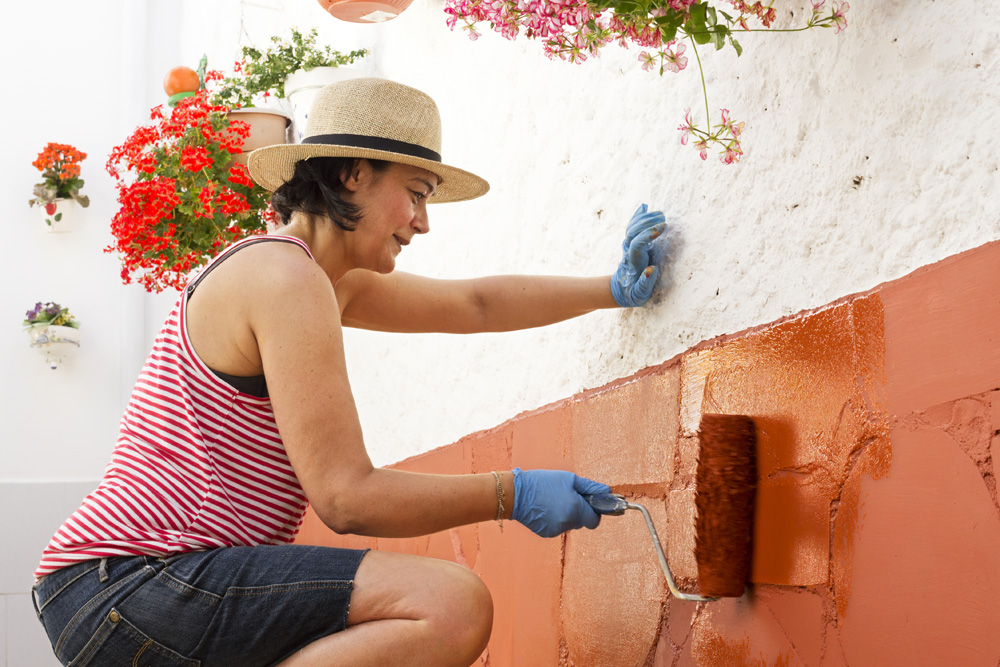Home Repair & Improvements
By practicing healthy household habits, homeowners can keep common pollutants off the ground and out of storm drains. Many hazardous materials that may be used in and around residences during routine maintenance activities include:
- Oils
- Paints
- Cleaners
- Bleaches
- Pesticides
- Glues
- Solvents
Adopt these healthy household habits to keep storm drains and the ocean clear of polluted runoff.

Required Activities
- Clean out painting equipment in an area where the waste can be contained and properly disposed of. Latex-based paints can enter the sewer while oil-based needs to be brought to a hazardous waste center
- Rinse off cement mixers and cement laden tools in a contained washout area. Dispose of dried concrete waste in household trash
- If safe, contain clean up and properly dispose of all hazardous waste spills. If unsafe conditions exist, call 911 to activate a proper response team
- Household hazardous materials must be stored indoors or under cover, and in closed and labeled containers. Dispose of them at a household hazardous waste center
- Household wash waters (e.g. washing machine waste, mop water) must be disposed of in the sanitary sewer
- It is preferred that pool and spa water is discharged to the sanitary sewer. However, pool and spa water may be discharged to the storm drain if residual chlorine is less than 0.1 mg/L, the pH is between 6.5 and 8.5, and the water is free of any unusual coloration, dirt, or algae. Call 714-834-6107 to obtain information on a pool drain permit. Pool filter media must be contained and disposed of properly
Recommended Activities
- Only purchase the types and amounts of materials needed
- Share unused portions of products with neighbors or community programs
More Information
For more information about proactive home care to prevent polluted runoff, check out our applicable brochures below:
Tips for Home Improvement Projects
Tips for Using Concrete and Mortar (Spanish)
Tips for Projects Using Paint (Spanish)
Sewage Spill Reference Guide for Private Property Owners